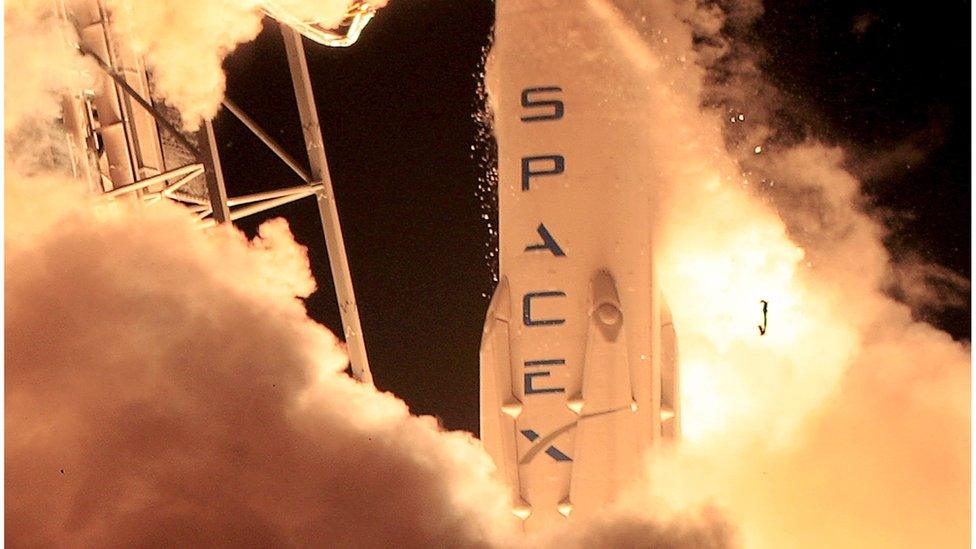SpaceX records another rocket landing
- Published
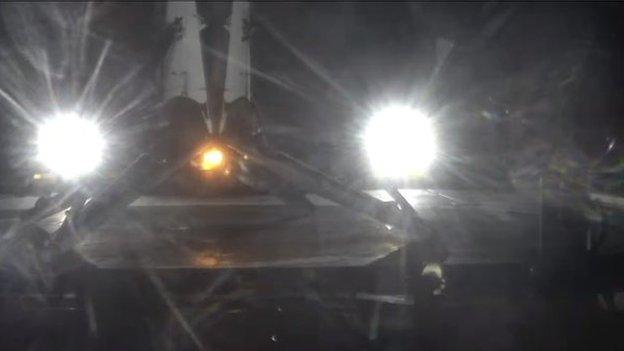
Legs down: The first stage of the rocket lands on the drone ship positioned some 650km from shore
SpaceX has made another successful landing of a rocket stage at sea.
The Falcon-9 booster returned to a drone ship off the Florida coast just a few minutes after it had sent a Japanese satellite on its way to orbit.
It is the second at-sea touchdown for California's SpaceX company, having completed the same task last month.
This latest effort was all the more impressive however because the rocket was carrying much more speed when it made its return.
SpaceX officials have said that recovering boosters used on missions that orbit geostationary satellites will always be more difficult because of the high velocity required to put those platforms in the right part of the sky.
On confirmation of the latest landing, SpaceX CEO Elon Musk tweeted the joke: "May need to increase size of rocket storage hangar."
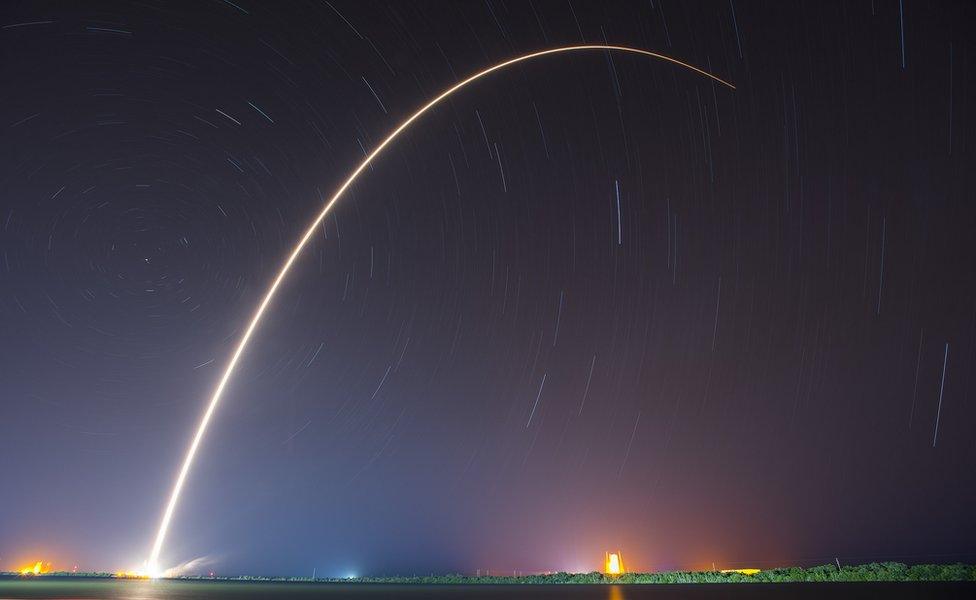
The Falcon-9 heads out over the Atlantic from Cape Canaveral
The primary purpose of the latest Falcon launch was to orbit the JCSAT-14 satellite.
This spacecraft will relay telecommunications over the Asia-Pacific region for the Sky Perfect JSAT Corporation.
Lift-off from Florida's Cape Canaveral Air Force Station occurred at 01:21 local time (05:20 GMT).
Separation of the satellite from the Falcon's upper-stage, which is not recovered, was recorded 32 minutes later.
Friday's mission had been delayed a day because of poor weather over the Cape.
SpaceX has now brought back three boosters to Earth under control.
Its first success was in December, when it returned a stage to hard ground close to the Florida launch site.
But it is the ocean landings on special barges that SpaceX is very keen to master. The nature of many of its missions will mean a sea platform is going to be a very frequent return location.
Sending satellites to geostationary transfer orbit requires a lot of performance from the Falcon-9 rocket, and that energy then has to be removed before it can make a landing.
It is not just the extra speed at which the booster is travelling that must be reduced; it is also the extra loading and heating on components that has to be taken into account.
For SpaceX, the goal is clear, however: if it can recover, refurbish and re-fly rockets it should be able to offer its customers lower-cost launches.
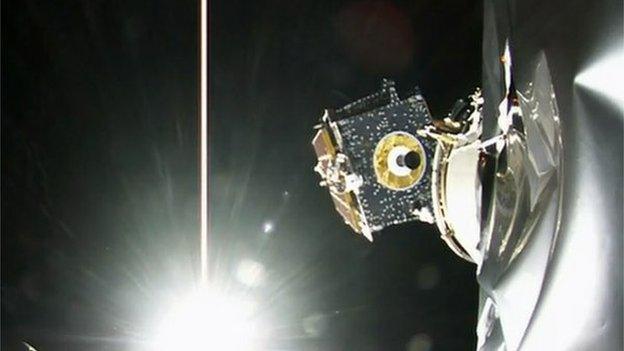
The satellite passenger was released 32 minutes after launch
Jonathan.Amos-INTERNET@bbc.co.uk, external and follow me on Twitter: @BBCAmos, external
- Published27 April 2016
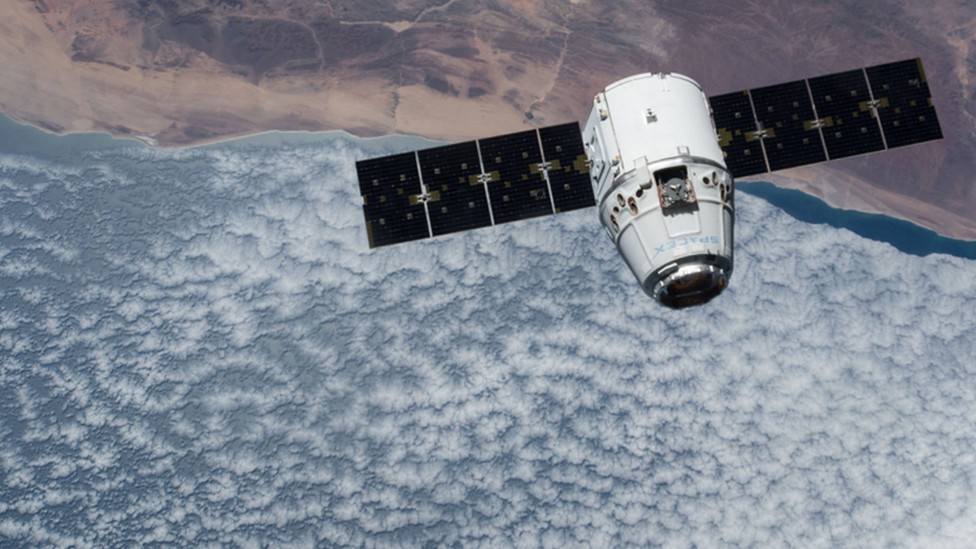
- Published9 April 2016
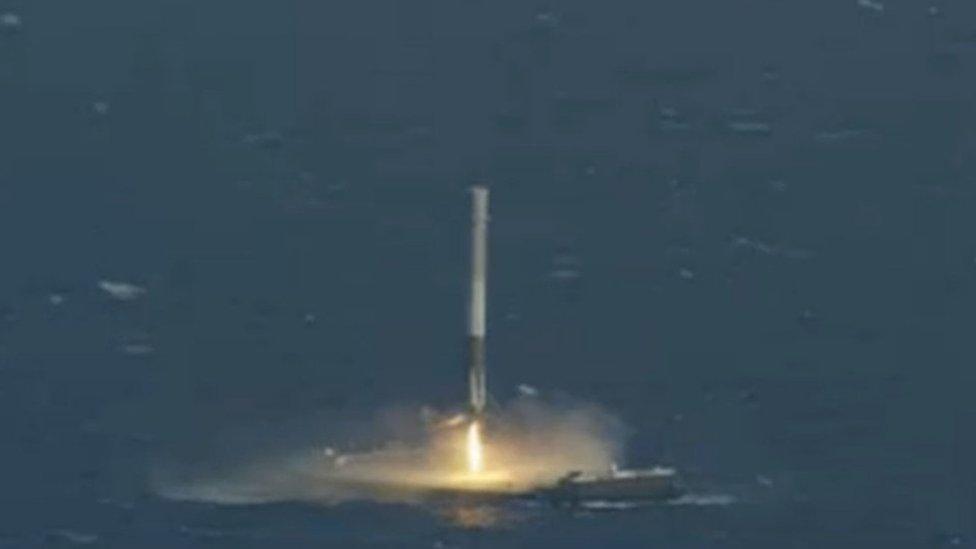
- Published7 April 2016
- Published5 March 2016
